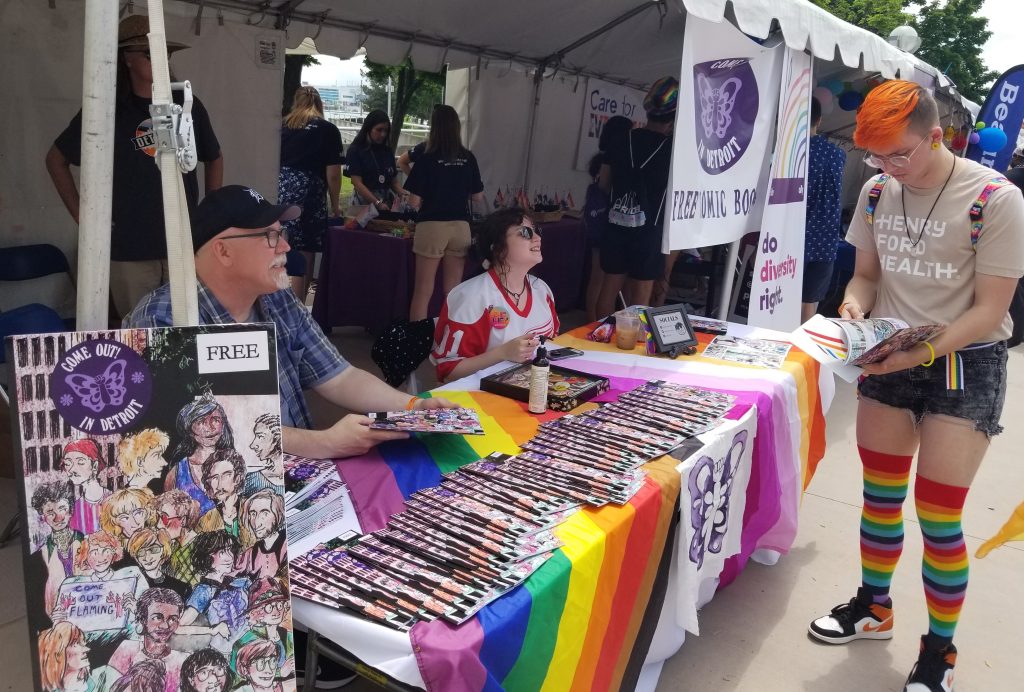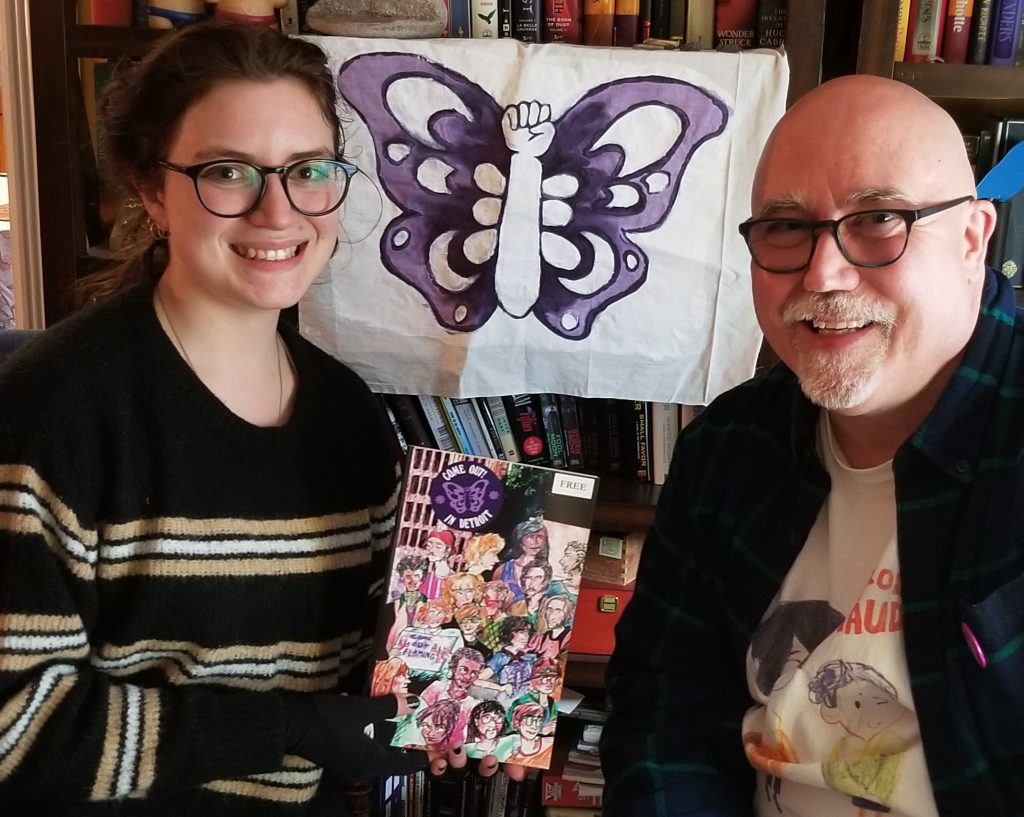By: Patti McDonald
Michigan State University Fixed-term Assistant Professor Dr. Tim Retzloff recently won the Allan Bérubé Prize from the LGBTQ+ History Association (formerly The Committee on Lesbian, Gay, Bisexual and Transgender History) for his comic book Come Out! In Detroit. The Allan Bérubé Prize recognizes outstanding work in public or community-based lesbian, gay, bisexual, transgender, and/or queer history completed in 2022 or 2023.
Come Out! In Detroit is a full-color, 32-page nonfiction comic book co-created with freelance illustrator Isabel Clare Paul that tells the story of the first Pride celebration in Michigan, which took place in Detroit more than 50 years ago. The comic is the only published work of its kind and features firsthand accounts and artwork based on various previously unpublished photographs.
“I was thrilled when I found out we were getting the award,” Retzloff said. “This award will allow local LGBTQ+ history to get wider recognition.”
Retzloff, who teaches history and LGBTQ+ studies at MSU and has been studying and researching LGBTQ+ history for more than 30 years, said he is quite proud of this award, especially after meeting Bérubé several years ago.
“I am especially pleased to get this award since it is for grassroots and public history and is named for Allan Bérubé, an esteemed working-class queer independent historian and MacArthur Fellowship recipient who I was fortunate to have met in the early 1990s on a visit to San Francisco,” Retzloff said.
Retzloff had his own tumultuous experience coming out as a gay man. Prior to his coming out in high school, he grappled with feelings of isolation and loneliness, a common experience for many people in the LGBTQ+ community. He “had a rough go of it” and dropped out of college while he was studying at the University of Michigan-Flint. Despite this setback, Retzloff re-enrolled in college courses several years later and graduated from the University of Michigan-Ann Arbor with his Bachelor of Arts degree in history. He then attended Yale University, where he earned his Ph.D. in history and wrote a dissertation focused on the history of queer life in metro Detroit from 1945-85.
After his dissertation, Retzloff still saw the need to capture Michigan’s first Pride activities in a “more extensive, grassroots way.” Retzloff began working with Paul on what he calls a “do it yourself, grassroots project” that eventually turned into Come Out! In Detroit.
Thanks to community fundraising and a Michigan Humanities Grant, the two printed and distributed over 20,000 copies at venues and Pride events across the state.
“Creating this comic book just struck us as a unique way to tell the story, and to reach audiences young and old that might not necessarily read history or read queer history,” he said.
Retzloff also stressed the necessity of integrating LGBTQ+ history into the education system.
“In my experience in the classroom and talking to various groups, there is a kind of a hunger for learning more about LGBTQ+ history,” Retzloff said. “So much of it isn’t taught in K-12 and usually unless you’re taking certain classes in college, it’s not necessarily been taught at the university level either.”
Retzloff said it is important to note that the initial organization of the Detroit Pride march started at MSU, with student organizers from around Michigan meeting in East Lansing to organize the event and other similar celebrations across the state of Michigan.
“The initial meeting was here at Michigan State,” Retzloff said. “The student group at the time was called the Gay Liberation Movement. They were one of the key organizers and participants. There was a strong contingent from East Lansing that went to Detroit and then Ann Arbor and Detroit folks formed another two other cores. But then there were people involved from Grand Rapids and Kalamazoo and Battle Creek.”
Despite a proliferation of Pride celebrations in recent years, most Michiganders were oblivious to prior celebrations.
“People didn’t realize there had been this earlier effort to bring people together, to me that helped make for a compelling story,” Retzloff noted.
“We’ve arrived at this moment where there have been some achievements. All these suburbs of Detroit including Berkley, Ferndale, Grosse Pointe, Livonia, Royal Oak and Macomb County have their own Pride events. Even the suburbs of Lansing, including Meridian Township, had their own Pride last year for the first time. There’s this kind of desire to come together as a community, in a way that’s celebratory and getting this award for Come Out! In Detroit will ensure this history is being told and is widely accessible to anyone who has the desire to learn more about this type of history.”
As a testament to the comic book’s impact, this year State Sen. Jeremy Moss, a James Madison College alumnus, cited the queer local history that Retzloff uncovered in introducing a resolution to the Michigan legislature declaring June as Pride Month.

Tim Retzloff (left) and Isabel Clare Paul (right) at Motor City Pride.

Isabel Clare Paul (right) Tim Retzloff (left) at Motor City Pride.